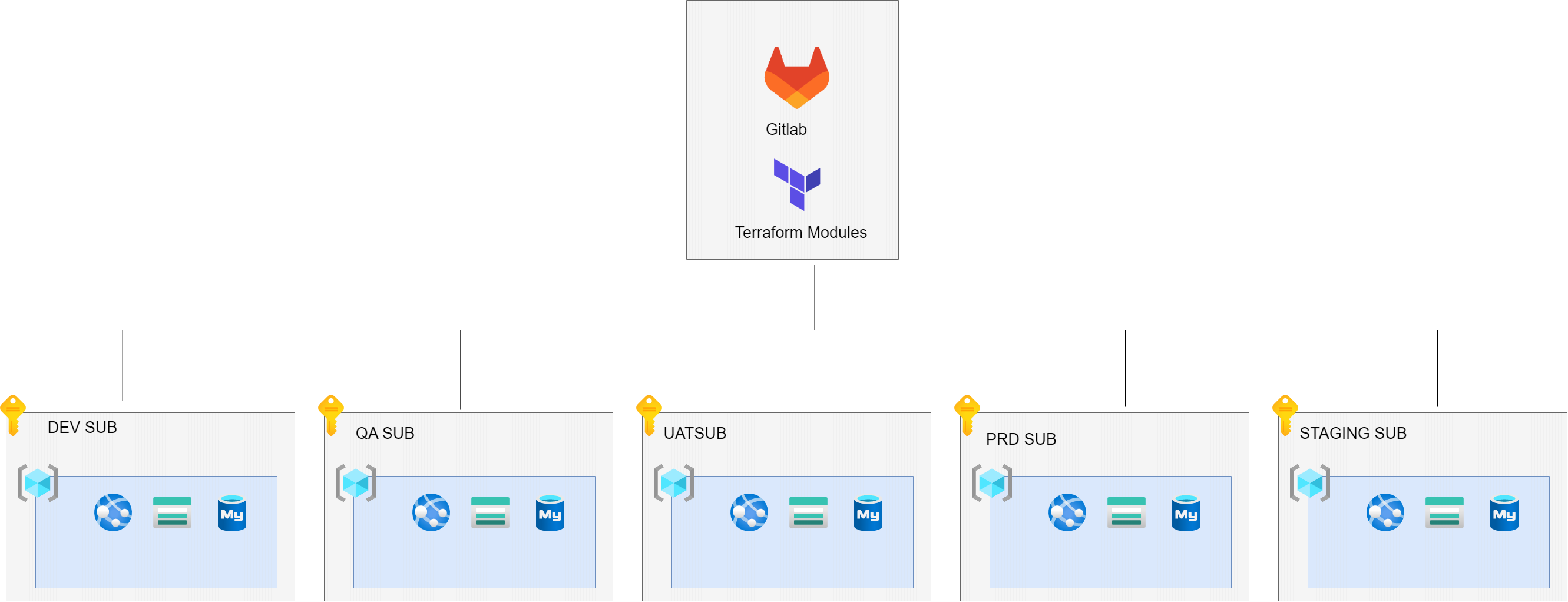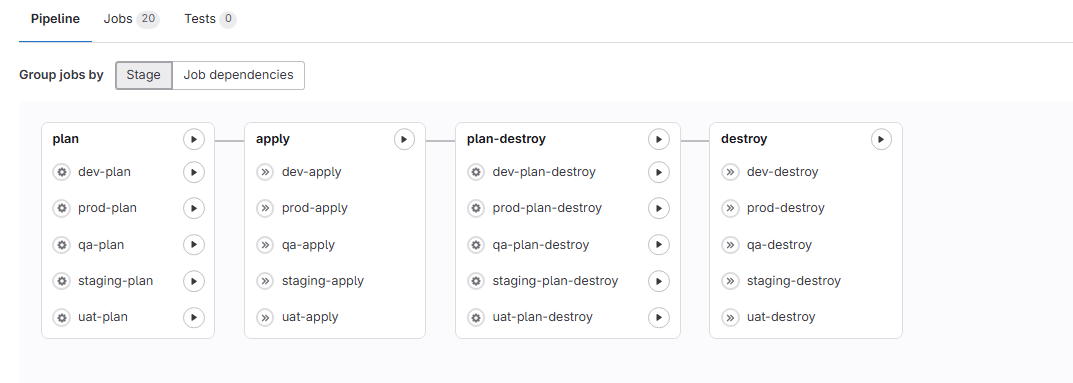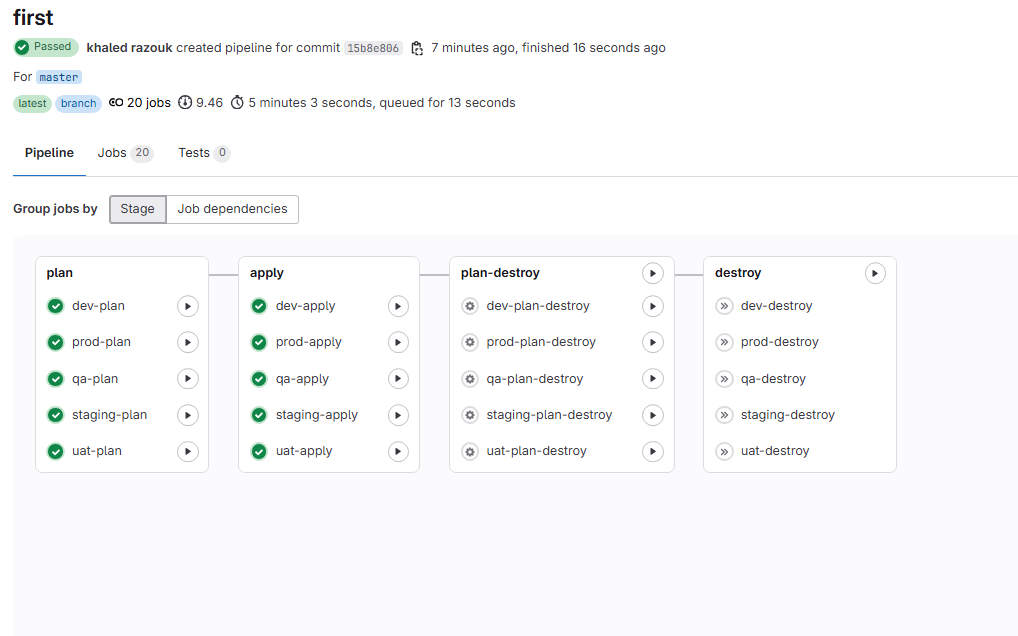YAML Deployment with GitLab CI/CD and Terraform

In this article, we explore how to leverage GitLab CI/CD pipelines and Terraform modules to deploy scalable infrastructure across multiple environments. We also discuss the importance of Microsoft Cloud Adoption Framework (CAF) in ensuring governance, cost optimization, and operational excellence.
Why Use Terraform Modules?
Terraform modules allow you to create reusable, standardized infrastructure components. By using modules, you can:
- Ensure consistency across environments (e.g., dev, uat, prod).
- Reduce code duplication and simplify maintenance.
- Enable scalability by reusing the same module for multiple resources.
- Improve collaboration by defining clear inputs and outputs.
Example: Terraform Child Module
Below is an example of a Terraform child module that creates a resource group in Azure:
resource "azurerm_resource_group" "rg" {
name = var.resource_group
location = var.location
}
Example: Terraform Root Module
The root module integrates multiple child modules to create a complete infrastructure:
module "resources" {
source = "./modules/resources"
}
Scaling Resources Across Multiple Environments
Scaling resources across multiple environments (e.g., dev, uat, prod) is critical for organizations to:
- Ensure consistent infrastructure configurations.
- Optimize costs by scaling resources based on environment needs.
- Improve deployment speed and reduce errors.
- Enable better governance and compliance with organizational policies.

Microsoft Cloud Adoption Framework (CAF)
Microsoft CAF provides a structured approach to cloud adoption, focusing on governance, cost management, and operational excellence. By aligning your Terraform modules with CAF principles, you can:
- Ensure proper tagging for cost tracking and resource management.
- Implement role-based access control (RBAC) for secure deployments.
- Standardize naming conventions to improve resource discoverability.
- Enable automated policy enforcement using Azure Policy.
Benefits of Using Terraform with GitLab CI/CD

Integrating Terraform with GitLab CI/CD pipelines offers several benefits:
- Automated infrastructure provisioning and updates.
- Version control for infrastructure as code (IaC).
- Seamless integration with Azure for authentication and resource management.
- Improved collaboration through shared pipelines and reusable modules.
Best Practices

- Use environment variables to manage sensitive data securely.
- Implement manual approvals for production deployments.
- Leverage Terraform modules to standardize infrastructure components.
- Monitor pipeline execution using GitLab's built-in tools.
Conclusion
By combining GitLab CI/CD, Terraform modules, and Microsoft CAF, organizations can achieve scalable, secure, and cost-effective infrastructure deployments. This approach not only saves time but also ensures better control over resources and aligns with organizational goals.